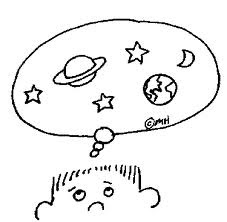Recently, Smashwords offered all of its authors the chance to participate in an interview on the Smashwords website. Here is what James had to say.
Q- What's the story behind your latest book?
A- "Spencer Murdoch and the Portals of Erzandor" was inspired by the emotional state brought on by a post 9-11 environment, the spirit of a world changed by a single act. This is the story of a family working to retain their happiness and security despite obstacles beyond their control.
Q- What is the greatest joy of writing for you?
A- When I'm writing, and the story is flowing, I really become immersed in the characters and their plight. It's almost like I become that character and I'm living through them. I know it sounds a bit psychotic or schizophrenic, but I think that feeling is the experience of any creative person while they're writing, or painting, or composing, or whatever. Being a fantasy writer means that I experience things I could never live through in a million lifetimes. I hope the reader feels the same.
Q- What do your fans mean to you?
A- Naturally, the fan is what makes the world go 'round for a writer. The reader is the most important aspect of creating. I want them to come away from my stories with a
"Wow. That was different… or original." I'm not sure if I have any fans in the true sense of the word. Not like J K Rowling or something. I'm sure I have some vaguely interested people. I guess they would be my fans. Hey. If you're out there somewhere, drop me a note at jamesmmbaldwinauthor@aol.com
Q- What do you read for pleasure?
A- I often enjoy reading classics, especially science fiction classics. I also enjoy reading speculative short stories. There's just something exciting to me about entering another world every time you sit down to read.
Q- Who are your favorite authors?
A- My favorite author is probably Ray Bradbury. Not only do I enjoy his stories but I think he is a good role model for an author. In his work ethic or approach I mean. Another along those same lines is C S Lewis. His space trilogy, specifically "Out of the Silent Planet" is what made me decide I wanted to be a writer. Also, Madeleine L'Engle's "Wrinkle in Time" quadrilogy is one of my all-time favorites. Her imagination is unrivaled. I recently discovered that she wrote a fifth book in that series. I need to get my hands on that and read it. The Jenkins and LaHaye "Left Behind" series is entertaining and inspirational, especially for anyone who has read the bible. My favorite modern writer would have to be Ted Dekker. His circle trilogy is A-plus.
Q- What is your writing process?
A- Most of the trained writers I workshop with at the Nebraska Writers Workshop will probably scoff at me for saying this, but I'm a seat of the pants writer. Most successful writers have everything planned out before they begin. My planning is all in my head. So it's not like I don't know where I'm going, but there's always room for exploration and new direction. Albeit, a lot of what I write gets cut out later.
Q- Describe your desk.
A- Uh… messy.
Q- What inspires you to get out of bed each day?
W- Because I have a day job, I don't have any choice. My writing takes place in the dark of night. I think that fact is reflected in the subject matter and tone in my writing. Of course family also plays an important part in my life. So, if you're getting the drift here; I don't sleep much.
Q- When you're not writing, how do you spend your time?
A- As I mentioned before, family is an important part in my life. So I like to take them to do free things like hiking or to the beach at a local lake. My son is interested in paranormal investigation, and I'm his sidekick. I'm also a bicycling addict. Whenever I can, I take off and ride somewhere between 10 to fifty miles at a time. I keep trying to push the distance a little further each time. Maybe someday when the kids are grown, I'll ride my bike across the country. Years ago I wrote and recorded several rock albums, but it's been a while since I've forayed in that direction. It would be a joy to have the time to get back into that again. I studied art in college and enjoy pencil drawing. I'm also an avid painter and sculptor. Wanna buy a painting? Hahaha
Q- Do you remember the first story you ever wrote?
A- I wrote a story about a young man that finds himself alone. The phone rings and he picks it up to find no one there. Then the doorbell rings. He runs to answer it and no one is there. He runs up and down the street searching for someone, anyone. He finds no one. Scared and dejected, he returns home. He passes a mirror and looks in. And… you guessed it… no one is there. I thought it was brilliant at the time.
Q- What are you working on next?
A- I think, like most authors, there's always a plethora of projects running through my mind. Sometimes that can be a distraction to progress. But, as for projects actually in the writing stage; I have two short stories I need to finish. One's has a working title of Schätzchen Drachen, which is German for baby dragon. It's the story of a young boy in the Black Forrest of Germany that finds a Dragon egg. The other is a darker tale that was actually the result of a bad dream. I'm not exactly sure how far to take that one. The dream was pretty extreme. After I finish those two, I need to get to a new round of editing on the completed second novel in my Spencer Murdoch series. It has a working title of "The Island of Sora Sesha." I'm really excited to get back to that and publishing it sometime in 2014.
You can get books by James M M Baldwin at the following locations
Paperback edition of "Spencer Murdoch and the Portals of Erzandor" at
CreateSpace here.
Paperback edition of his science fiction short story collection at
CreateSpace here.
Paperbacks and Kindle editions at
Amazon here.
Also available in Amazon stores worldwide.
Ebook editions for any ereader in the
Smashwords store here.
IBooks for iPhone, iPod, or iPad at
iTunes here.
Nook editions from
Barnes and Noble here.
Also available at
Sony,
Kobo,
Diesel, and can be requested as an ebook checkout at libraries worldwide.









